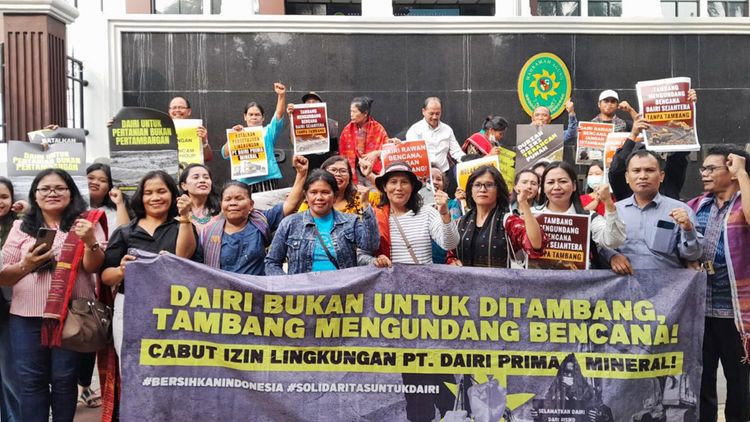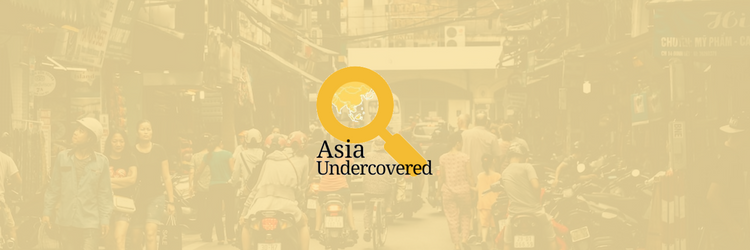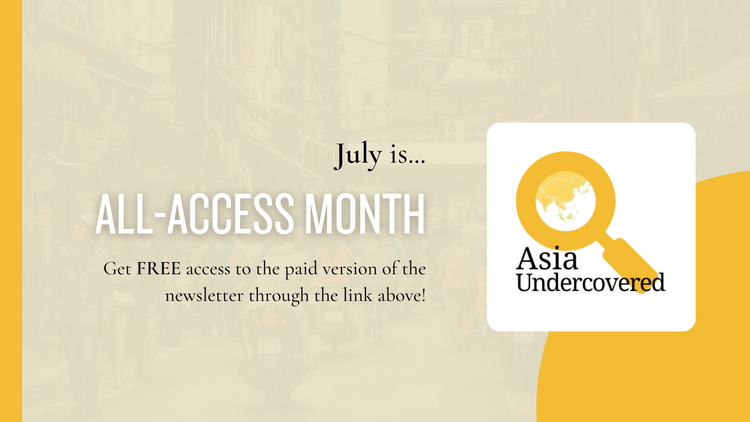Asia Undercovered #9: China's Digital Authoritainism and Taiwan's Elections
This week: Taiwan’s surprise election results, coal in China, a worrying Malaysia rally, and the soon to be world’s largest airport.
What is Asia (to me)?
As you’ve probably realized, Asia Undercovered does not cover all of Asia. It tends to focus on the places I cover as a journalist; Southeast Asia, Japan, China from a regional perspective, along with areas I’ve also done one-off stories in; Taiwan, India, and Nepal. But my interest in interconnections also keeps neighboring countries in South and East Asia in the headlines for me.
Asia Undercovered does not include the Middle East (except, occasionally, for Afghanistan, which some consider South Asia) as I only understand the bare minimum of the complexities of that region. I also likely don’t cover Central Asia enough, as it’s also a region I am unfamiliar with though deeply interested in. So this newsletter focuses on stories from countries in East, Southeast and South Asia. Which is merely half the world’s population.
If you’re looking for other Asia newsletters to expand your knowledge of what’s happening in the region, check out this great list from Splice Newsroom.
Undercovered this week
The biggest tech issue of 2018 isn’t Facebook. It’s the rise of Chinese-style digital authoritarianism, most exemplified in Xinjiang but likely coming to a country or city near you, soon (Rappler).
Taiwan’s election results were a disappointment for progressives. Gay marriage lost, as did several candidates who were members of President Tsai Ing-wen of the ruling Democratic Progressive Party (DPP). Brian Hioe from New Bloom has a good summary of the results and what they mean for Taiwan’s political future.
Note: There will be a LOT of important elections in Asia in the coming months, including in the region’s three largest Democracies - India, Indonesia, and Bangladesh. I’ll be including stories in this newsletter on all of them.
Some good news from Bangladesh as photographer Shahidul Alam has been released. He was detained after making statements to Al Jazeera. It shows that pressure can protect journalists, but as Shafquat Rabbee writes, does not mean that the country has turned a corner on repressing its free press.
Ahead of the COP24 Climate Talks, read this piece in Panda Paw Dragon Claw on China’s overseas investments in coal, which many fear could undo the progress the country has made to cut fossil fuel use domestically.
This worries me. I’ve been seeing signs that Malaysia’s opposition wants to use religious nationalism to regain support, and a coming Malay-Muslim rally, on Dec 8th, could be the first sign of this strategy.
History is important to understanding the present
And that’s why I really enjoyed this piece in New York Book Review by Ian Johnson, that answered one contradiction for me – how can China be so Islamophobic despite having a long, deep, and mutually beneficial relationship with Islam? The answer connects to how China views all Abrahamic religions and the rise of Han nationalism under Xi Jingping.
And because I love airports
Beijing will open the world’s largest airport later next year, a behemoth that’s 2/3rds the size of Manhattan. Yet, with airspace in the country controlled by the military, it may not help alleviate increasing congestion. Excellent read in the New York Times.
Until next week,
Nithin Coca

Asia Undercovered: Journalist Nithin Coca's weekly roundup of the news, events, trends and people changing Asia, but not getting enough attention in the US media.





Member discussion